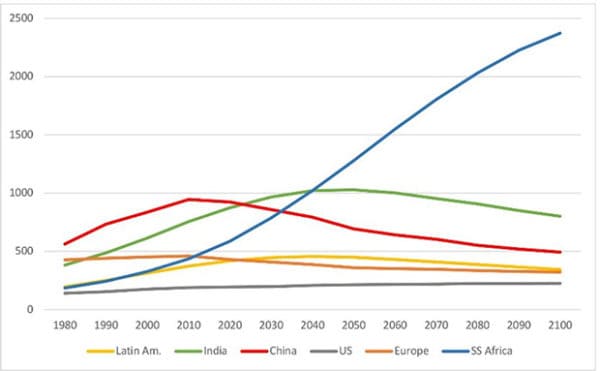The Marvels That Ending Systemic Racism Will Achieve
Jared Taylor, American Renaissance, November 30, 2020
The New York Times has published an important article that measures the economic gains that could be achieved if anti-black discrimination were ended. In “Racism Impoverishes the Whole Economy,” Professor Lisa D. Cook of Michigan State University writes that “new research” finds that “discrimination inflicts a staggering cost on the entire economy, reducing the wealth and income of millions of people.”
Prof. Cook says that if American blacks were not held back by personal and institutional racism, their contributions would match those of whites. They would take out countless patents, start high-tech companies, invent new medical procedures, and rejuvenate every field. Prof. Cook calculates that this would have added an additional $16 trillion worth of GDP since 2000. Americans of all races would benefit if the tremendous talents of 40 million black people — now repressed — were allowed to flower.
Prof. Cook’s analysis is an encouraging beginning, but it is too narrow. Racism hurts us, not only because it prevents African-Americans from fulfilling their potential but because it channels them in tragic directions. Driven by the forces of racism, black Americans commit more than half of all murders and robberies, for a rate 7.5 times that of whites.
In New York City, blacks are 30 times more likely than whites to be arrested for murder and nearly 100 times more likely to be arrested for “shootings,” in which a victim is hit but not killed by gunfire. In an equitable society, these crimes would virtually disappear, and thousands of families would be spared the deaths and devastation that are the legacy of racism. Across the country, prisons would empty, and reductions in crime would persuade even conservatives to support defunding the police.
Prof. Cook also failed to note that racism has terrible health consequences, especially for black women, our most vulnerable and marginalized population. They are 60 percent more likely than white women to be obese, twice as likely to be diabetic, 56 percent more likely to have high blood pressure, 6.9 times more likely to have gonorrhea, and 4.7 times more likely to have syphilis. They are twice as likely as white women to become single mothers, and single mothers are twice as likely as married women to die from childbirth-related complications. Freed from the daily struggle against bigotry, black women would make healthful life choices that would benefit themselves and their families, and would slash medical costs.
Prof. Cook should also expand her vision of an equitable future to include our neighbors. Haiti, practically on our doorstep, suffers from the global equivalent of the institutional racism that oppresses African-Americans. As we assume leadership in the campaign for equity, we must broaden the scope of disciplines such as critical race theory so as better to understand the malign forces that prevent the people of Haiti from fulfilling their historic potential as the second Western-Hemisphere nation — after the United States — to free itself from colonial rule.
Research in this area must be conducted by institutions such as the newly founded Boston University Center for Antiracism Research. Under the pioneering leadership of Ibram X. Kendi, it is already discovering how color-blind policies and even the best-intentioned whites nevertheless crush the potential of African-Americans. Unfortunately, the center’s mission statement is too narrowly American: “We are working toward building an antiracist society that ensures equity and justice for all.”
The same insights that will free African-Americans from the legacy of slavery and Jim Crow must be adapted to the world, with the liberation of Africa as our primary goal. Once we have defeated the malevolent systems that hold back both Africa and African-Americans, what racists once called “the dark continent” will lead the world. This graph from the Hoover Institution, is a projection of the sizes of national and regional workforces.

Beginning in 2040, sub-Saharan Africa (the blue line) will be the world’s largest pool of human talent. By the end of the century, it will be greater than all the rest combined. Dismantling systemic obstacles to the full flowering of African genius is therefore one of the crucial tasks of the decades ahead.
Joe Biden has said that “rooting out systemic racism” is “the moral obligation of our time.” Of course, he is right, and now that we can put the nightmare of “American First” behind us, he should understand the incalculable potential of putting Africa first. The future of our species could depend on it.
Professor Lisa Cook, who wrote the Times article, is a member of Joe Biden’s transition team. It is heartening to know that the new administration will be guided by such people, but I urge her and her colleagues to lift their eyes above economics and beyond our borders to unleash global forces for good that have been held in check for centuries. Progressives must never be guilty of the soft bigotry of low expectations.















